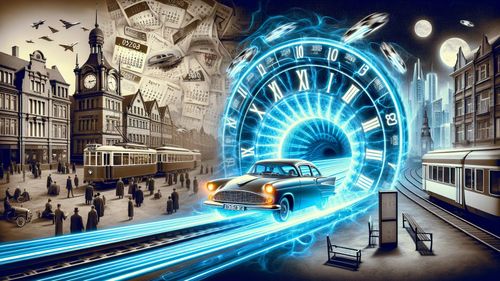The Back to the Future Paradox: Why Consistent Timelines Aren't Always What They Seem
Feb 20, 2024 · 2 mins read
0
Share

Imagine a world where Doc Brown's DeLorean time machine is real. In 'Back to the Future,' time travel seems simple—change the past, fix the future. But hang on, time paradoxes lurk!
Save
Share
Remember poor Marty McFly's mom falling for him instead of his dad? That's a temporal hijinks classic. Changing the past can alter your very existence, a concept known as the Novikov self-consistency principle.
Save
Share
Physicists ponder: If you go back in time and kill your grandpa, preventing your birth, how were you ever born to do it? This is the Grandfather Paradox, a headache for time travelers and philosophers alike.
Save
Share
The Novikov principle suggests events conspire to prevent paradoxes. So, even if you try to alter history, things will adjust to keep the timeline consistent—like a cosmic Etch A Sketch that always self-corrects.
Save
Share
Think of it like this: If you traveled back to warn your younger self about a future disaster, you'd already be the reason it happened. Fate, it seems, has a wicked sense of humor.
Save
Share
In quantum mechanics, the Many-Worlds Interpretation offers another twist. Each choice creates a new parallel universe, meaning time travel could spawn countless alternate realities instead of just one fixed timeline.
Save
Share
But let's not forget H.G. Wells' 'The Time Machine.' His Morlocks and Eloi caution us about tampering with destiny. Changing the past could create unforeseen horrors, not Utopias.
Save
Share
Movies like ' source_code ' and 'Primer' explore the loops and consequences of time manipulation. They remind us that time is a stubborn beast, resistant to easy manipulation and unintended consequences.
Save
Share
Time travel stories entertain, but they also make us ponder causality and fate. So, the next time you wish for a DeLorean, consider the mind-bending consequences before hitting 88 mph.
Save
Share
Ultimately, the Back to the Future paradox teaches us that sometimes, the best way to deal with the past is to learn from it, not alter it. After all, our mistakes make us who we are—just ask Marty McFly!
Save
Share
0